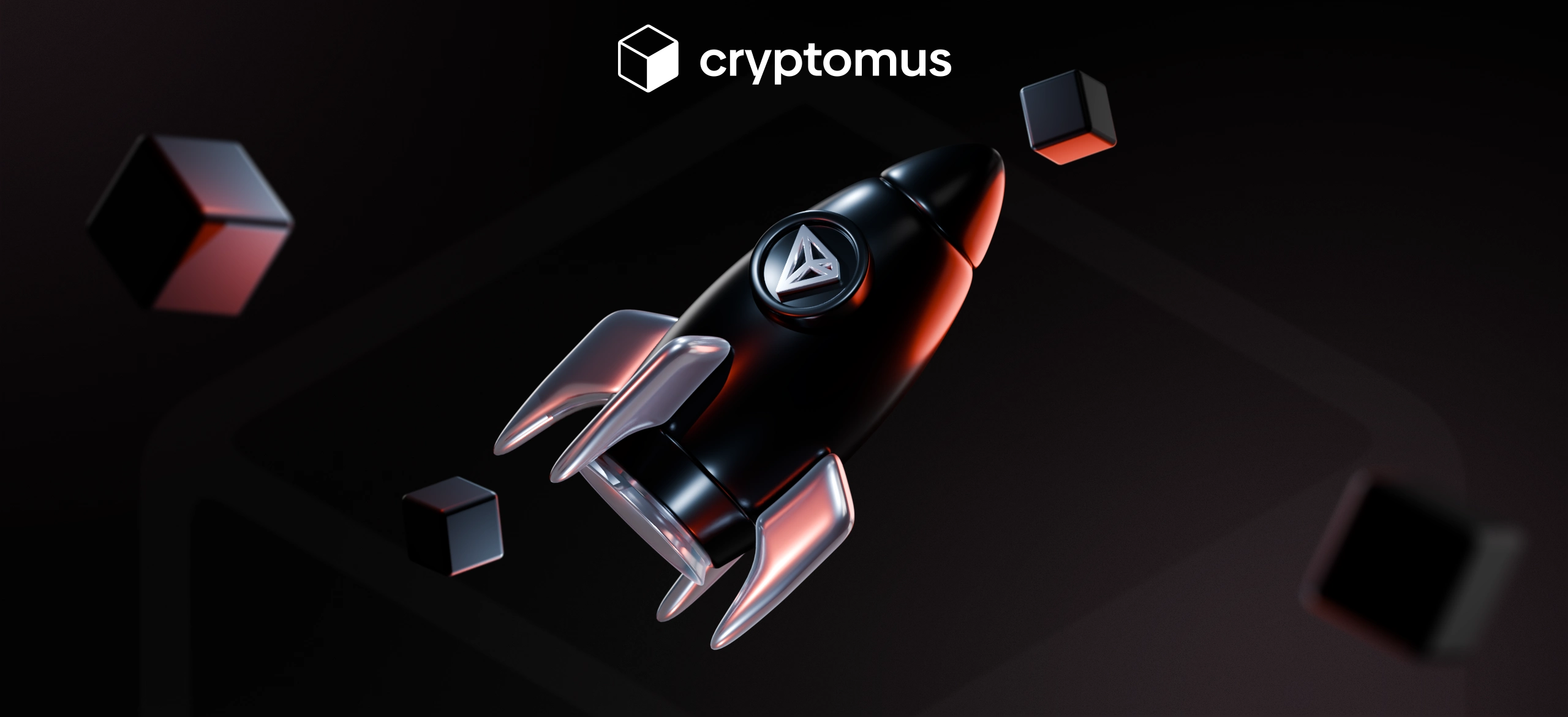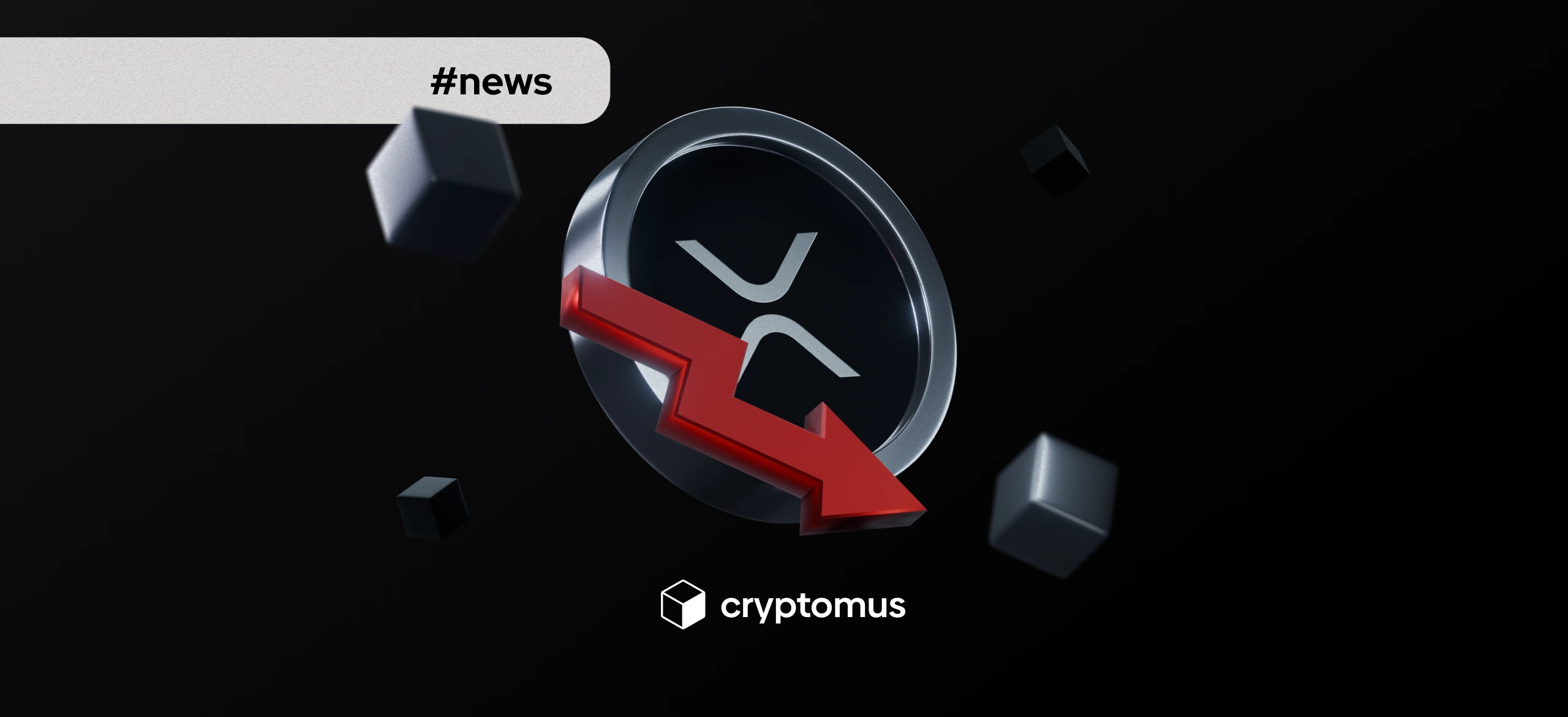
How to Buy Crypto in Nigeria?
Table of Contents
Cryptospace is considered a young and still developing sector. That's why in many jurisdictions, the legal clarity for digital finance remains shady and complicated. Today, we'll research every important thing about crypto in Nigeria and answer the most popular questions. Let's begin!
Is It Legal to Buy Crypto in Nigeria?
Yes, buying crypto in Nigeria is legal, but only within strict regulations. In 2025, the Investment and Securities Act (ISA 2025) recognized digital assets as securities, so, it’s only possible to work through licensed Virtual Asset Service Providers (VASPs) — exchanges, wallet providers, and custodians. Their activities are supervised by the Securities and Exchange Commission (SEC), and the Central Bank of Nigeria (CBN) has allowed banks to open accounts for them and provide services. Using unlicensed platforms remains risky, and transactions and income are subject to KYC and AML rules.
However, crypto is not a legal tender. You can only purchase and store assets in crypto wallets and send it to others. But you can pay for goods and services only with Nigerian naira (NGN).
Ways to Buy Crypto in Nigeria
There are several ways to buy crypto in Nigeria, with their own advantages and disadvantages. Let's take a look at each of them.
Centralized Exchanges (CEXs)
These are platforms for working with crypto. By registering on these platforms and passing verification, users receive a full set of tools—wallet, staking, a trading terminal, and more.
Examples: Cryptomus, Busha, Yellow Card.
-
Pros: user-friendly interface, various cryptocurrencies, strong security measures.
-
Cons: KYC (Know Your Customer) is required.
P2P (Peer-To-Peer) Platforms
Those are the platforms where you can buy crypto directly from other users, setting your own terms for the transaction.
Examples: Cryptomus P2P, Binance P2P, Paxful P2P.
-
Pros: wide range of payment methods, low fees.
-
Cons: high risk of fraud, takes time to find the seller that suits your needs.
Exchangers (Instant Swaps)
These are online services that convert fiat into crypto without complicated trading interfaces. It's a one-page platform where users simply buy crypto for NGN and nothing else: simple and easy to understand.
Examples: ChangeNOW, Remitano, Bundle Africa.
-
Pros: fast transactions, multiple payment options (by card, mobile money, or bank transfer), simple interface.
-
Cons: high spreads, restrictions on transaction amounts.
Fintech Apps
These are local platforms, adapted to the African market, with simple methods of deposit and withdrawal.
Examples: Quidax, Busha, Bundle.
-
Pros: multiple deposit methods (bank transfer, mobile wallets), simple interface.
-
Cons: high fees, limited coin selection, heavy reliance on SEC and CBN regulation.
Crypto ATMs
These machines work just like regular ATMs, but instead of working with cash, they let you purchase cryptocurrency.
Examples: ATMs in Lagos and Abuja (supporting BTC, sometimes ETH and USDT).
-
Pros: a quick method, direct cash deposit when buying and withdrawal when selling crypto.
-
Cons: high fees, limited number or available tokens, identity verification is often required.
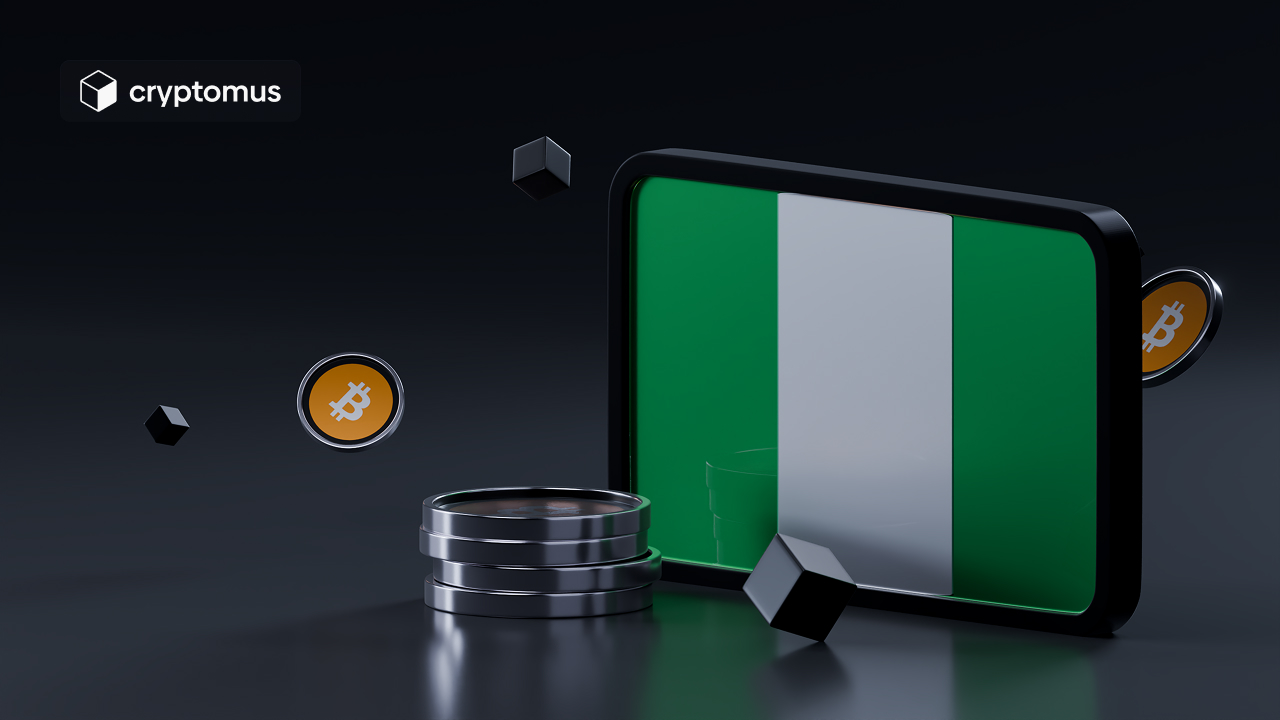
Step-By-Step Guide on Buying Crypto in Nigeria
The most convenient and common way to buy cryptocurrency out of all the ones we've mentioned is through centralized exchanges. This is the method we'll cover in our guide.
So, to buy cryptocurrency in Nigeria through CEX, you need to:
-
Choose a CEX that works with naira.
-
Register an account.
-
Complete KYC and enable 2FA.
-
Fund your account in naira.
-
Buy the crypto.
-
Save the transaction confirmation for tax reporting.
Now, let's look at each of these steps in more detail.
Choosing a CEX
Make sure the exchange supports deposits/withdrawals in naira and works with local banks. Don't forget to check if the exchange is CBN-approved. Familiarize yourself with the accessibility of the features and the interface, and decide if it fits your taste.
Account Registration
Enter your email/phone number and create a strong password. Confirm them to unlock basic access to your account.
KYC Verification and Setting up 2FA
Upload a document (passport/ID), take a selfie, and upload these to the site to pass the KYC procedure. Then, enable 2FA for an extra layer of protection.
Depositing Funds in naira
Fund your wallet balance with naira via bank card, or local fintech app (Busha or Yellow Card).
Buying Crypto
The easiest way for beginners is to buy crypto directly on an exchange using services like Mercuryo or exchange integrations with bank cards and e-wallets. You simply select the desired crypto, enter the amount in it or in NGN, confirm the payment, and then the coins are credited to your wallet.
Purchase Confirmation
Check whether the coins have come to your wallet, and transfer them to another one, if you want. You can also store crypto on the exchange's native wallet.
Saving Confirmation for Taxes
Save the check, screenshot, and invoice of the transaction — it will be useful for tax reporting.
Simple Way to Buy Crypto with Your Credit Card
Now let’s dive into the process of buying crypto with your credit card. We’ll take Cryptomus as an example:
-
Step 1: Sign up for a Cryptomus account to get your personal cryptocurrency wallet. Don’t forget to protect it by enabling 2FA and setting a strong PIN.
-
Step 2: To buy cryptocurrency on Cryptomus, you need to pass the KYC procedure: take a selfie, provide your documents, and verify your contact info. You may do it through your personal account settings.
-
Step 3: Return to the dashboard and click “Receive”. Fill in all your criteria: select the desired cryptocurrency to buy and a suitable network. Then choose “Fiat” as a type of receive option when you’re buying crypto with a debit or credit card.
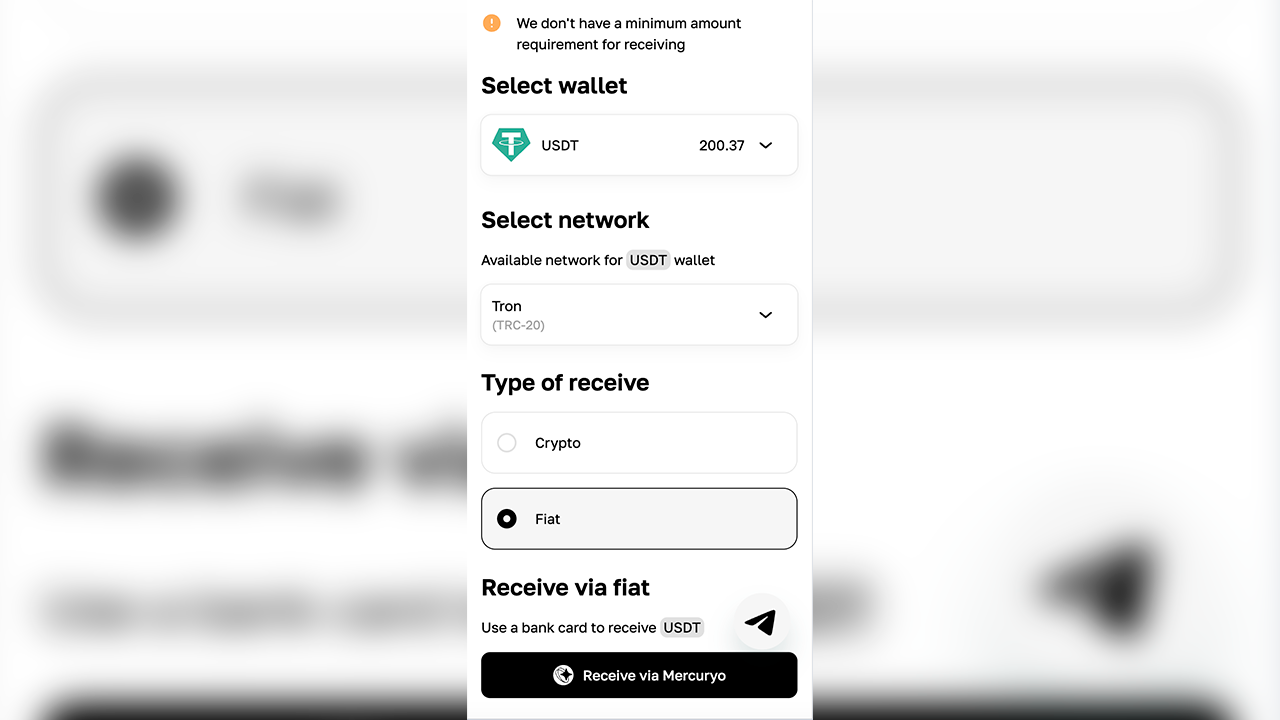
- Step 4: Click on “Receive via Mercuryo” and fill in the gap with the amount you’re going to pay in the preferred currency. The receiving amount of crypto will be automatically calculated in the payment form.
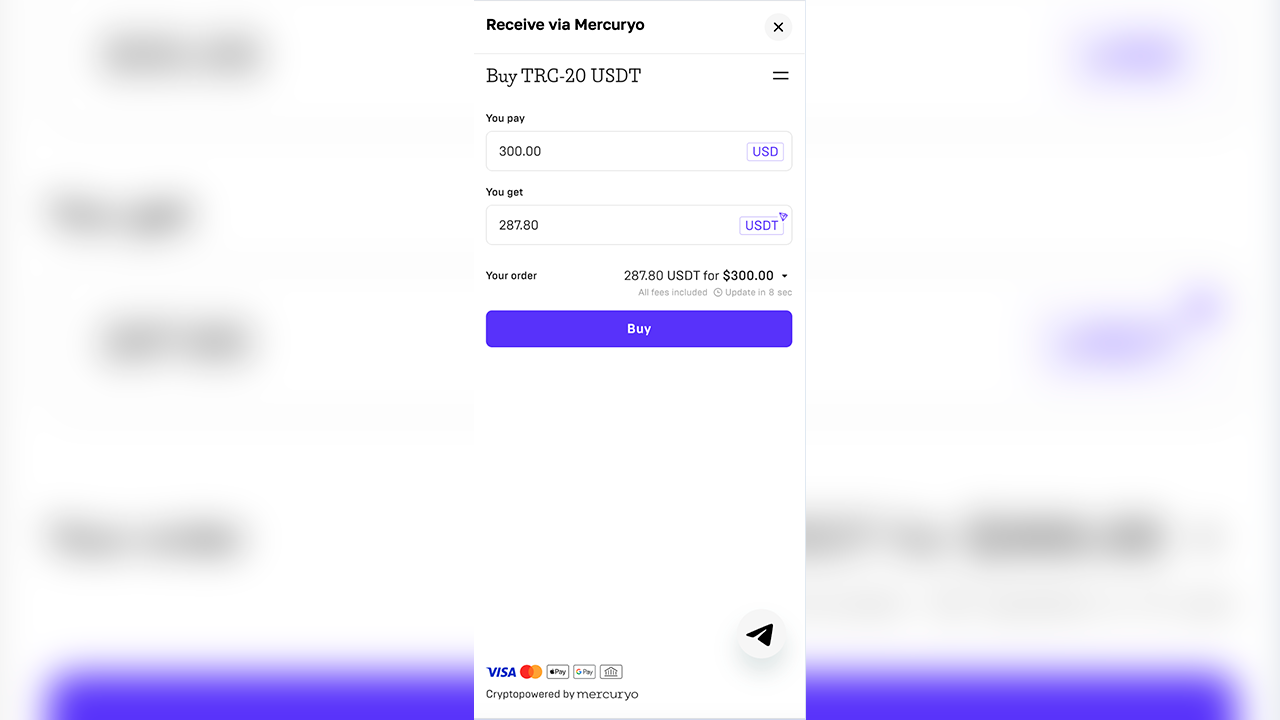
- Step 5: Next, fill in your email address for getting a verification code, and enter your debit or credit card details to make a purchase. Then confirm the action.
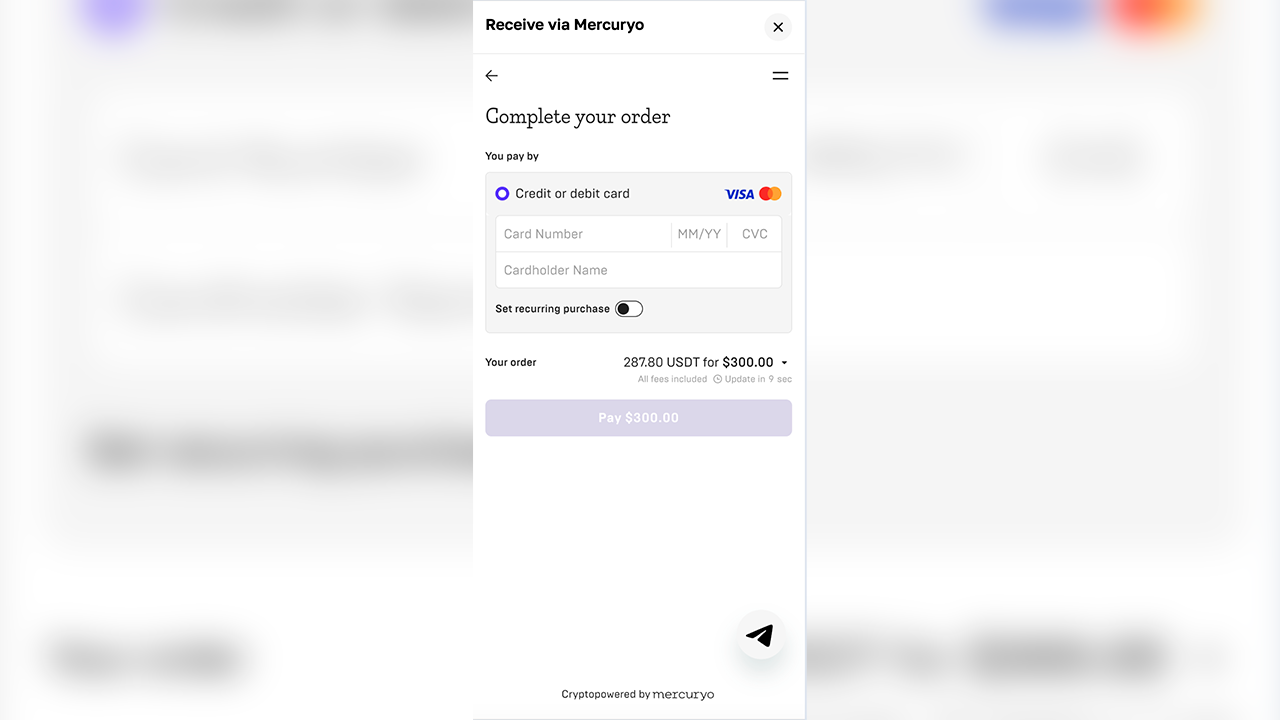
Well done! You’ve just bought cryptocurrency with a card without any complications. The funds will be credited to your personal wallet soon!
Do You Have to Pay Taxes on Cryptocurrency Investments?
Right now, crypto taxation in Nigeria has remained in a “gray area”. There are no official rules, so users could buy, sell, and store digital assets without having to declare profits or pay taxes. The central bank and the SEC only restricted the operation of exchanges and payment channels, but the tax authorities did not directly regulate crypto transactions.
However, we've suggested you save all the data of your transactions for a reason. The legal situation will change on January 1, 2026, when the new tax law (Tax Act 2025) comes into force. Cryptocurrencies, NFTs, game items, etc. will officially become subject to taxation.
Important point: tax is applicable only to profits. If a coin was bought for 100,000 naira and sold for 250,000 naira, tax is only put on the difference of 150,000 naira. The same applies to crypto exchanges and NFT sales.
If an investor has lost money—the exchange rate has fallen, coins have been stolen, or the exchange has closed—the losses can be deducted from other crypto profits, but only if there is documentary evidence. For individuals, profits are taxed at the standard income tax rate, and for companies, there is a capital gains tax of 30% of profits. In addition, exchanges and services (VASPs) will be required to report user transaction data to the tax authorities, and refusal to do so will result in heavy fines and even license revocation.
Thus, while tax rules were unclear until 2026, after the new law comes into force, Nigeria's crypto market will become fully regulated: it will be possible to simply hold assets without paying taxes, but any recorded profits will be subject to accounting and taxation.
Did you find this article useful? Did we answer all of your questions? Let us know in the comments below!
Simplify Your Crypto Journey
Want to store, send, accept, stake, or trade cryptocurrencies? With Cryptomus it's all possible — sign up and manage your cryptocurrency funds with our handy tools.
Get Started








